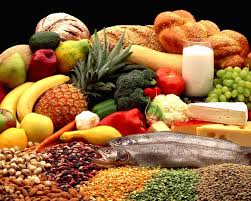World wastes almost half of all food produced


Every slice of bread or banana wasted also carries a cost in terms of the resources including water and land used to produce it, warned Professor Linus Opara from Stellenbosch University’s Faculty of AgriSciences.
“When you throw away a banana because it has gone frot, you do not realise how much it actually cost to the environment to produce it,” Opara said. “Our current food system is sick, it is making our environment and planet sick because of the huge impact it has on our agriculture.”
Opara was speaking at the Johannesburg launch of a joint report on the state of the planet’s health yesterday. Produced by the Rockefeller Foundation and a commission organised by The Lancet medical journal, the report argues that environmental degradation has reached unprecedented levels and that humanity is living beyond the earth’s means.
[quote float= right]“We are seeing people living longer now (and) poverty has been reduced but it comes at the destruction and cost of our planet”
“The energy demand has spiraled, we have seen water scarcity and usage increasing, there has been a decline in crop production mainly driven by water losses and we are seeing a dramatic loss of forestry,” said Derek Yach, head of Discovery Health’s Vitality Institute. “We are seeing people living longer now (and) poverty has been reduced but it comes at the destruction and cost of our planet”. Discovery Health hosted the report’s launch.
The report estimates that by 2050, about 40 percent of the world’s population could be living under severe water stress. The report warns that if people do not change the way they eat, climate change could lead to an additional 250,000 deaths annually between 2030 and 2050.
“We need a change in attitude, behaviour and consumption,” Opara said. “Do not over buy (and) start by educating people and our children from an early age. Money alone will not resolve this.”
The report also recommends that the world change the way food is produced more broadly by for instance reducing waste, encouraging diversified diets and addressing both under- and over-nutrition. The report also encourages governments to look at taxing polluters and reducing subsidies to harmful industries. – Health-e News.
Author
Republish this article
This work is licensed under a Creative Commons Attribution-NoDerivatives 4.0 International License.
Unless otherwise noted, you can republish our articles for free under a Creative Commons license. Here’s what you need to know:
You have to credit Health-e News. In the byline, we prefer “Author Name, Publication.” At the top of the text of your story, include a line that reads: “This story was originally published by Health-e News.” You must link the word “Health-e News” to the original URL of the story.
You must include all of the links from our story, including our newsletter sign up link.
If you use canonical metadata, please use the Health-e News URL. For more information about canonical metadata, click here.
You can’t edit our material, except to reflect relative changes in time, location and editorial style. (For example, “yesterday” can be changed to “last week”)
You have no rights to sell, license, syndicate, or otherwise represent yourself as the authorized owner of our material to any third parties. This means that you cannot actively publish or submit our work for syndication to third party platforms or apps like Apple News or Google News. Health-e News understands that publishers cannot fully control when certain third parties automatically summarise or crawl content from publishers’ own sites.
You can’t republish our material wholesale, or automatically; you need to select stories to be republished individually.
If you share republished stories on social media, we’d appreciate being tagged in your posts. You can find us on Twitter @HealthENews, Instagram @healthenews, and Facebook Health-e News Service.
You can grab HTML code for our stories easily. Click on the Creative Commons logo on our stories. You’ll find it with the other share buttons.
If you have any other questions, contact info@health-e.org.za.
World wastes almost half of all food produced
by ayandamkhwanazi, Health-e News
July 17, 2015
MOST READ
Prolonged power outage leaves hospitals in the dark for two days
There’s more to self-care than scented candles or massages, it’s a key public health tool
Malaria can’t be beaten without political will and more funding
Access to clean water and stable electricity could go a long way to addressing rising food poisoning in SA
EDITOR'S PICKS
Related

Millions go hungry, accountability and public participation needed



2 Comments
Hi – please could you send link to report – found an article by Whitmee on Lancet, but not sure if there is any other document as well. Don’t see anything on Rockefeller site.
Thanks
Hi Candy,
Thanks for your enquiry. I have attached a link to the report, hope it is what you are looking for.
http://www.thelancet.com/journals/lancet/article/PIIS0140-6736(15)60901-1/fulltext